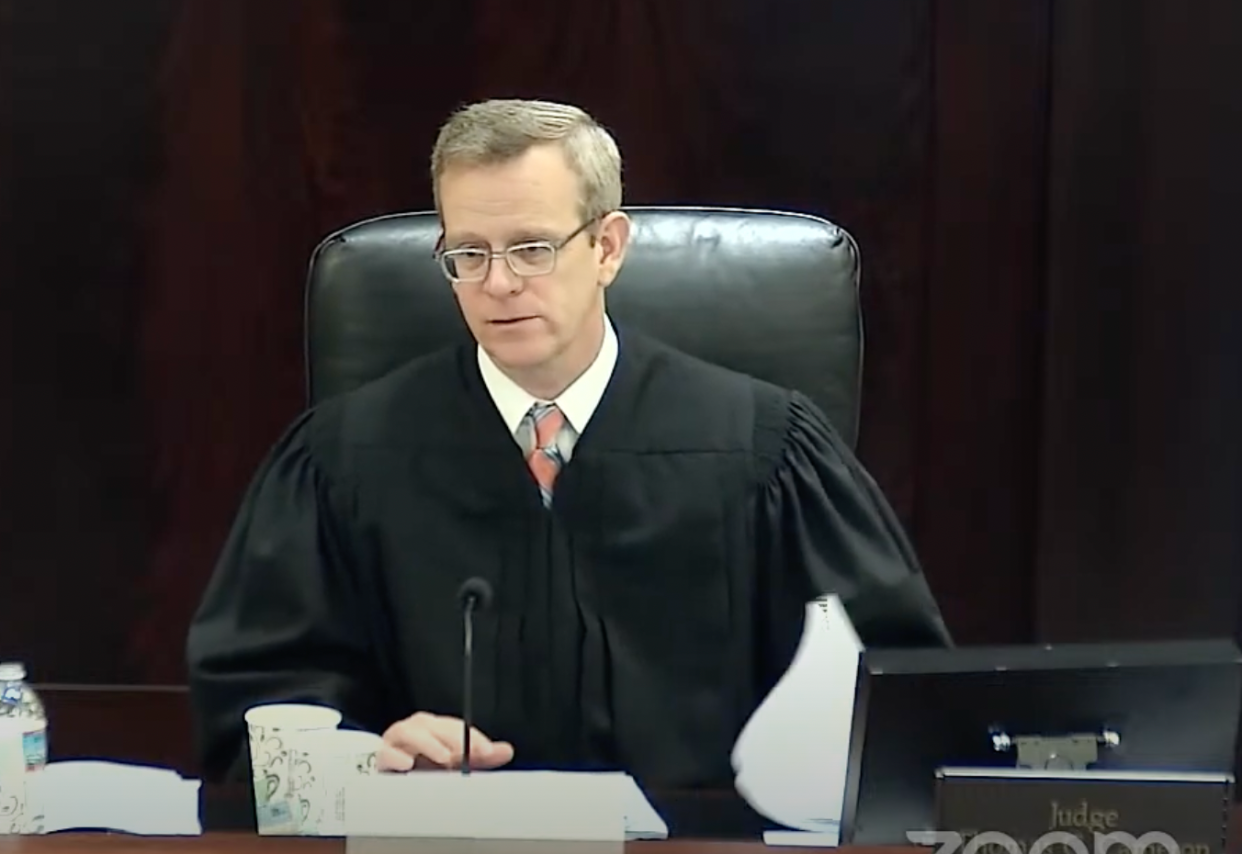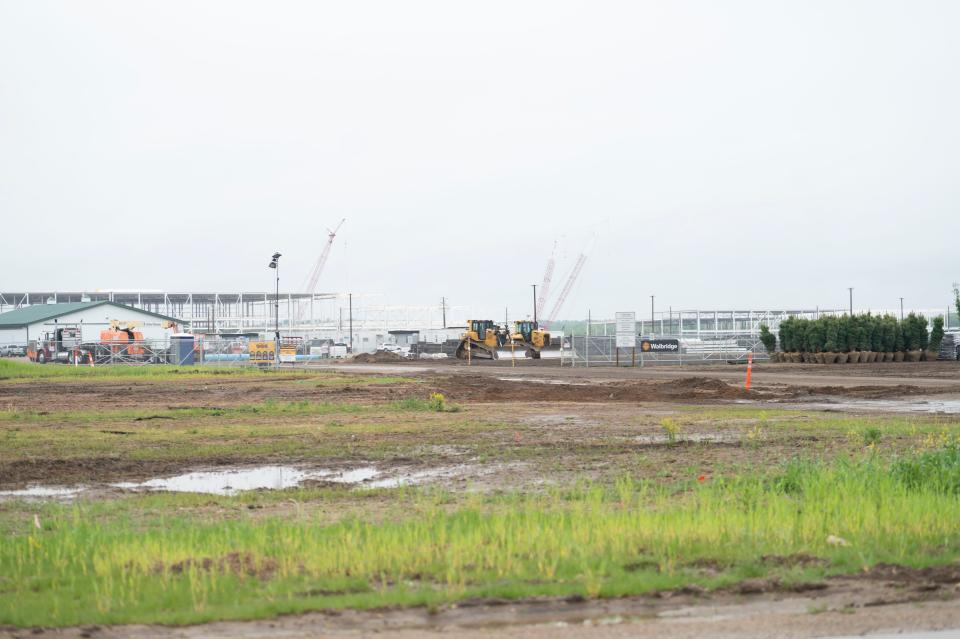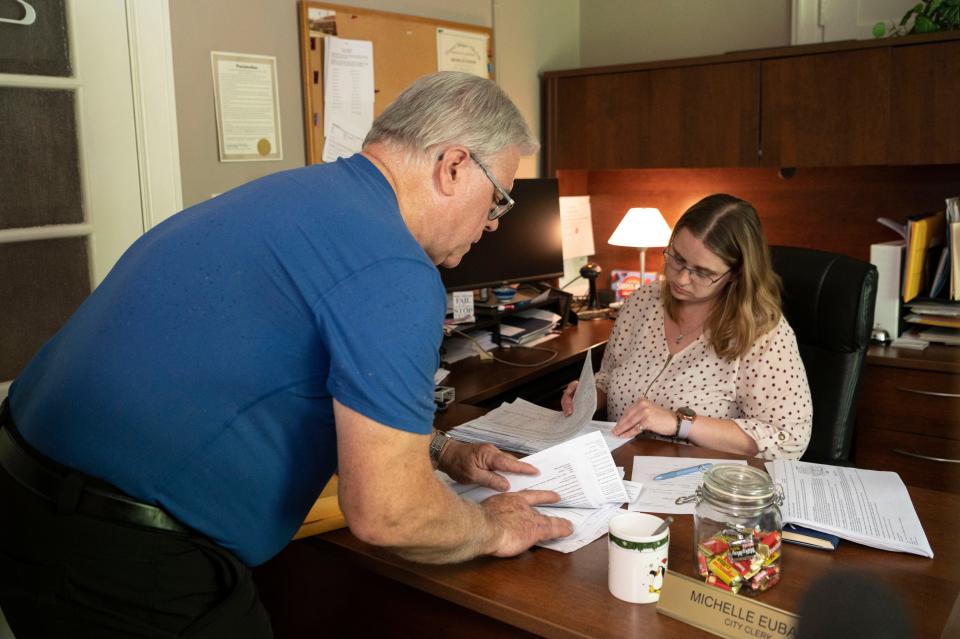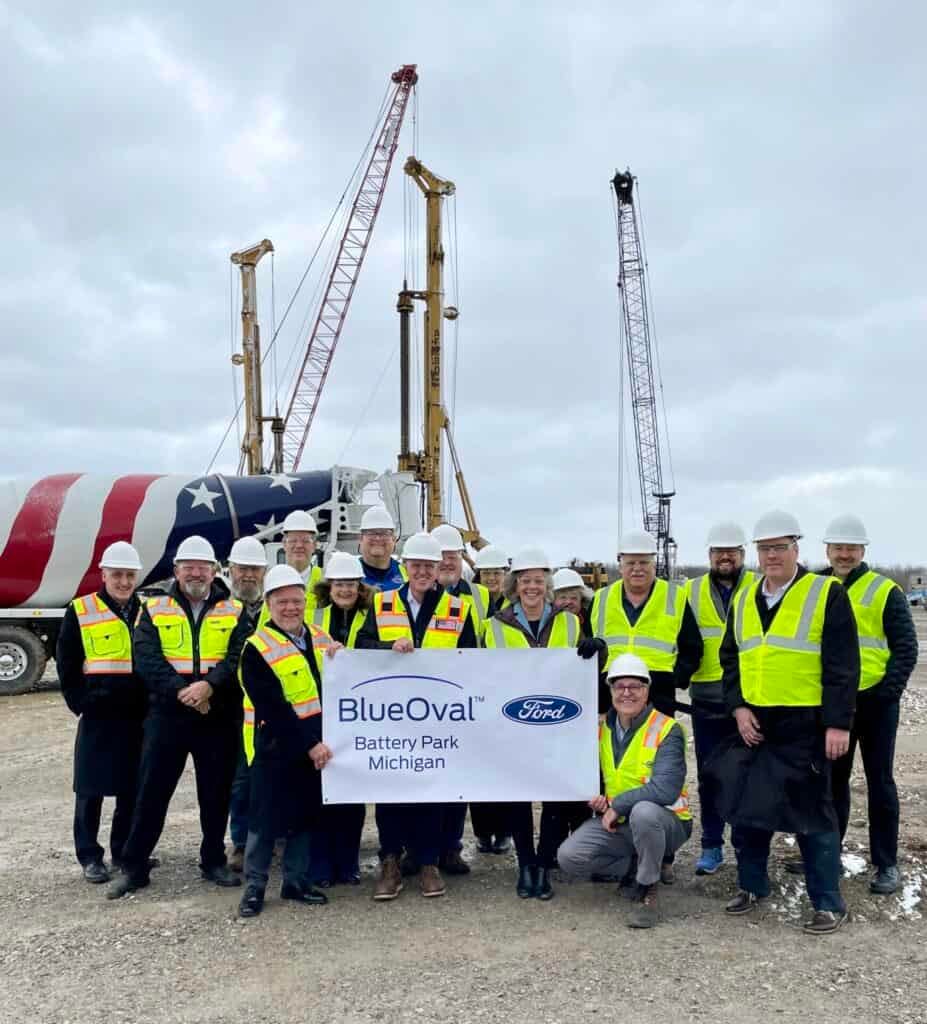Appeals court dismisses legal challenge to Ford EV battery plant near Marshall

MARSHALL — A lawsuit challenging rezoning tied to Ford Motor Company's electric vehicle battery plant near Marshall, BlueOval Battery Park Michigan, has been dismissed by the Michigan Court of Appeals.
A three-judge panel comprised of COA judges Thomas Cameron, Adrienne Young and Noah Hood upheld the lower court's decision as it determined the Committee for Marshall - Not the Megasite lacked "a clear, legal right" to a ballot referendum in its case against the Marshall Area Economic Development Alliance (MAEDA), the city of Marshall and Marshall City Clerk Michelle Eubank.
"We affirm the trial court’s decision to dismiss the Committee’s claims," the judges wrote in a 25-page opinion published Tuesday, adding that the trial court "also correctly concluded that the ordinance at issue complied with the Marshall City charter."
Jim Durian, CEO of MAEDA, said Tuesday's decision affirms the work by local officials "to follow the law as they took steps to create a site for the Ford facility in Marshall" as well as development of the larger Marshall Area Jobs, Opportunities, and Recreation (MAJOR) Campus.
“Our elected officials and local leaders in Marshall are always thinking about what’s best for our community and that’s why they took action and followed the letter of the law to create a campus that will create thousands of jobs,” Durian said. “This project is already having an impact on our community with dozens of construction workers visiting our area businesses, eating at our restaurants and staying at our hotels.”

Committee members originally filed the lawsuit last year, arguing the city and Eubank inappropriately rejected their petition seeking a citywide vote on Ordinance # 2023-08 — which effectively rezones 741 acres of the Marshall Megasite in support of the Ford project.
The Committee filed its appeal with the Michigan Court of Appeals in early February after Circuit Judge William Marietti dismissed the group's lawsuit against the city of Marshall and MAEDA on Jan. 10.
“This decision definitely puts Marshall city voters’ future rights at risk," committee member Regis Klingler said in a statement. "If ‘incidental’ appropriations are interpreted by the courts as being allowed by the city charter to be inserted into any city ordinance, the people of Marshall effectively have no right to referendum, and that’s exactly what the city did here.”
The Marshall City Council on May 1, 2023 unanimously approved a request to rezone 741 acres of the Marshall Megasite to Industrial and Manufacturing (I-3) Zoning, marking a key step forward in Ford's plans to build an electric vehicle battery plant on a portion of the Marshall Megasite, now known as the MAJOR Campus. The nearly 2,000-acre parcel southwest of the I-94/I-69 interchange in Marshall Township has been considered for decades as a potential destination for a large-scale manufacturing operation.

The Committee for Marshall - Not the Megasite subsequently submitted more than 800 petition signatures to Eubank on May 30 in hopes of triggering a citywide vote on the rezoning request. The number of signatures collected was well above the 10% threshold of about 580 signatures required by the city charter.
In a June 16 letter, Eubank indicated the targeted ordinance, in this case the rezoning of 741 acres of the Megasite, is not subject to a referendum or vote because the ordinance amendment approved by the city council included appropriations of $40,000 for site plan review services and $250,000 for building inspection services for the development of the proposed project. Such appropriations make the ordinance amendment ineligible for referendum under Article V, Section 5.01(b) of the city charter.
Eubank added the petition lacked the minimum number of valid signatures to place the measure on the ballot, in large part because the bulk of signatures were obtained by circulators that were not part of the five-member petition committee. Committee members said they were unaware of this requirement and argued the city charter does not explicitly state that only committee members can collect signatures.
In its original lawsuit filing last year, the Committee asked the court for an order to direct Eubank to immediately issue a certificate of sufficiency on the referendum petition, and to suspend Ordinance # 2023-08.
"The trial court did not abuse its discretion when it dismissed the Committee’s claim for a writ of mandamus," the COA judges wrote. "The trial court correctly concluded that the Committee’s mandamus claim failed for at least two reasons: first, an adequate alternative remedy existed (judicial review as provided in Section 5.04 of the Marshall Charter), and second, the Committee did not have a legal right to a ballot referendum on an ordinance containing appropriations."
The Committee has 42 days from the date of the decision to seek leave to appeal to the Michigan Supreme Court. The Committee is taking this under consideration with its legal team and "welcomes continued community support."
”I am disappointed with the COA ruling, but am extremely proud of the grassroots group of citizens who has fought long and hard for Marshall voters’ right to vote on the issue," committee member Diane Kowalske said. "Our legal team is amazing. We move forward knowing we did what was right.”

Ford initially promised 2,500 new jobs and a $3.5 billion investment when announcing the project in February 2023. The automaker then instituted a two-month pause on its own work at the Marshall site in September amid the UAW strike.
In November, Ford indicated it would be reducing its commitment to the Marshall-area EV battery facility by 800 jobs and more than $1 billion, moves that company officials said will reduce the plant's production capacity by roughly 40%. State officials have indicated incentives for the project will likewise be revised in accordance with the new investment parameters.
Construction of the plant continues, with production of lithium iron phosphate batteries expected to begin at the plant in 2026.
“Exciting things are happening in Marshall and with (Tuesday's) appeals court decision, we’re continuing that forward motion to add new jobs and create new opportunities,” Marshall mayor Jim Schwartz said in a statement. “We are appreciative of the court’s straightforward ruling that found our local leaders support their constituents and took the appropriate steps to create a new talent pipeline so young people won’t have to move away from home to find a job.”
Contact reporter Greyson Steele at gsteele@battlecreekenquirer.com
This article originally appeared on Battle Creek Enquirer: Appeals court dismisses legal challenge to Ford EV battery plant

